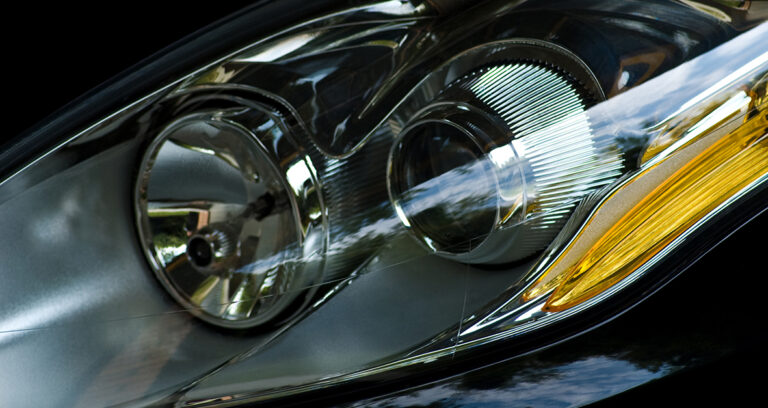Navigating Today’s Challenges: The Evolving Landscape for New Car Dealerships
In an ever-changing automotive landscape, new car dealerships are facing a myriad of challenges that require adaptation, innovation and strategic navigation. From shifting consumer preferences to supply chain disruptions and technological advancements, dealers must navigate a complex terrain to remain competitive and sustain profitability.
One of the primary challenges confronting new car dealerships is the changing preferences of consumers. Today’s buyers are increasingly seeking eco-friendly vehicles, advanced technology features and seamless digital experiences. This shift in demand necessitates dealerships to diversify their inventory offerings, incorporating electric and hybrid models, as well as vehicles equipped with cutting-edge infotainment systems and driver-assistance technologies.
Furthermore, the rise of online car-buying platforms presents a formidable challenge to traditional brick-and-mortar dealerships. With the convenience of online purchasing and the ability to compare prices and features at the click of a button, dealers must enhance their digital presence and invest in user-friendly websites and mobile apps to attract and retain customers. Embracing digital retailing solutions such as virtual showrooms and online financing applications can help dealerships stay ahead in an increasingly competitive market.
Supply chain disruptions pose another significant challenge for new car dealerships. Shortages of semiconductors and other essential components have led to production delays and limited inventory, exacerbating the already tight market conditions. Dealerships must proactively manage their inventory, communicate transparently with customers about potential delays and explore alternative sourcing options to mitigate the impact of supply chain disruptions on their operations.
Moreover, rising costs of labor, materials and regulatory compliance put pressure on profit margins. To remain financially viable, dealers must identify opportunities to streamline operations, optimize efficiency, and negotiate favorable terms with suppliers and vendors. Embracing lean principles and investing in employee training and development can help dealerships reduce costs while maintaining high levels of customer satisfaction.
Consumer financing challenges further complicate the landscape for new car dealerships. Economic uncertainties and changes in lending practices can make it difficult for customers to secure financing for vehicle purchases. Dealerships must work closely with financial institutions to offer attractive financing options, assist customers in securing loans and ensure compliance with regulatory requirements governing consumer lending.
Additionally, new car dealerships face stiff competition from the pre-owned vehicle market. The growing popularity of certified pre-owned vehicles and leasing options presents an alternative to buying new, diverting customers away from new car purchases. To differentiate their offerings, dealerships must highlight the benefits of buying new, such as warranty coverage, the latest technology features and customization options tailored to individual preferences.
Furthermore, regulatory compliance remains a constant challenge for new car dealerships. Navigating the complex web of federal, state and local regulations governing vehicle sales, advertising and financing requires diligent attention to detail and ongoing monitoring of legislative changes. Dealerships must stay abreast of evolving regulations, implement robust compliance programs and ensure that all employees are trained to adhere to legal requirements.
In conclusion, new car dealerships face a multitude of challenges in today’s dynamic automotive market. To succeed in this competitive landscape, dealers must embrace change, innovate proactively and prioritize the needs of their customers. By adapting to shifting consumer preferences, optimizing operations and staying compliant with regulatory requirements, dealerships can navigate the complexities of the modern automotive industry and thrive in the face of adversity. If you would like to discuss this further, please contact a member of the AutoCPAGroup.
By Gerry Green, CPA, Green & Miller, P.C.
Estate Tax Exemption— Is Now the Right Time to Gift?
The Tax Cuts and Jobs Act of 2017 more than doubled the lifetime estate tax exemption, increasing from $5.6 million for individuals and $11.8 million for married couples to an inflation-adjusted $13.61 million for individuals and $27.22 million for married couples in 2024. Unless Congress acts, this legislation will expire January 1, 2026, and the exemptions will revert or “sunset” to the 2017 amounts adjusted for inflation. This will be approximately $7 million for individuals and $14 million for married couples.
With the boom in the auto industry over the last few years, more dealers will be facing a taxable estate after the exemption sunsets. However, there is an opportunity to utilize the higher exemption amounts through gifting before 2026. Appreciating assets subject to valuation discounts (such as a minority interest in an automobile dealership) are ideal for gifting because future appreciation escapes the estate tax, and valuation discounts allow the assets to be valued at a lower amount for gift tax purposes. It is worth noting that these types of gifts are subject to more IRS scrutiny, so using a business appraiser who frequently values auto dealerships to provide a business valuation report is highly recommended.
Let’s look at an example of the estate tax savings that could result from gifting a 20% interest in a dealership worth $20 million today. For simplicity purposes, let’s assume a 10% discount for lack of control and marketability and annual appreciation of 5%.
When considering which assets to gift, if any, remember that you will lose control over the assets and the income they generate once you transfer them to someone else. Assess your cash flow needs before making any transfers, but don’t wait too long to act. Experts predict there will be an uptick in gift tax return filings leading up to the sunset date. Start working now with your estate planning advisors and AutoCPAGroup member to develop the right plan for you and your family.
By Tasha Sinclair, CPA, Tetrick & Bartlett, PLLC
Controlling Special Order Parts in Your Dealership
One of the biggest challenges in operating an automobile dealership is controlling and managing cash flow. Many areas in a dealership can tie up a sizeable amount of cash if left unchecked. One of these areas is special order parts.
Parts ordered for a customer that end up sitting on a shelf in the parts department create problems for a dealership. Unsold special orders not only hurt customer service and dealership profit potential but also contribute significantly to parts department obsolescence.
The parts department and the service department are often at odds with each other as to whose responsibility it is to follow up on them. The parts department suffers if the parts remain on a shelf unsold, but the service department suffers if a part is returned before the customer can be scheduled to come back into the dealership.
How can a dealership solve this problem? First, a set of policies and procedures needs to be established assigning responsibility and accountability for these special order parts. Rather than viewing the problem as a parts issue or a service issue, the two departments should work together to ensure that the customers come back in for these parts.
Some suggestions are as follows:
- When ordering a part for a service customer, obtain an estimated date of arrival for the part and, when possible, schedule an appointment for the customer to return for installation, allowing a few extra days for the part to arrive. If a customer is pre-scheduled, he is more likely to come back for the part, and the dealership only has to contact him if the part is on back-order or delayed.
- Have the customer prepay, if possible.
- Have the service manager approve special
- parts orders.
- When a part comes in for a customer who was not pre-scheduled, the service advisor responsible for generating the customer special order contacts the customer and sets up an appointment.
- Consider holding the service department and the service advisor responsible for the part and any charge-back fee to provide additional motivation for getting the customer back into the dealership.
- Keep all special order parts in a separate bin in the parts department. Assign responsibility to parts department personnel for weekly follow-up.
The key to any policy or procedure is constant review and accountability. Contact your AutoCPAGroup member to help establish a special order parts policy for your dealership. Don’t let your cash be tied up in a bin full of special order parts!
By Susan R. Harwood, CPA, Hulsey Harwood & Sheridan, LLC






